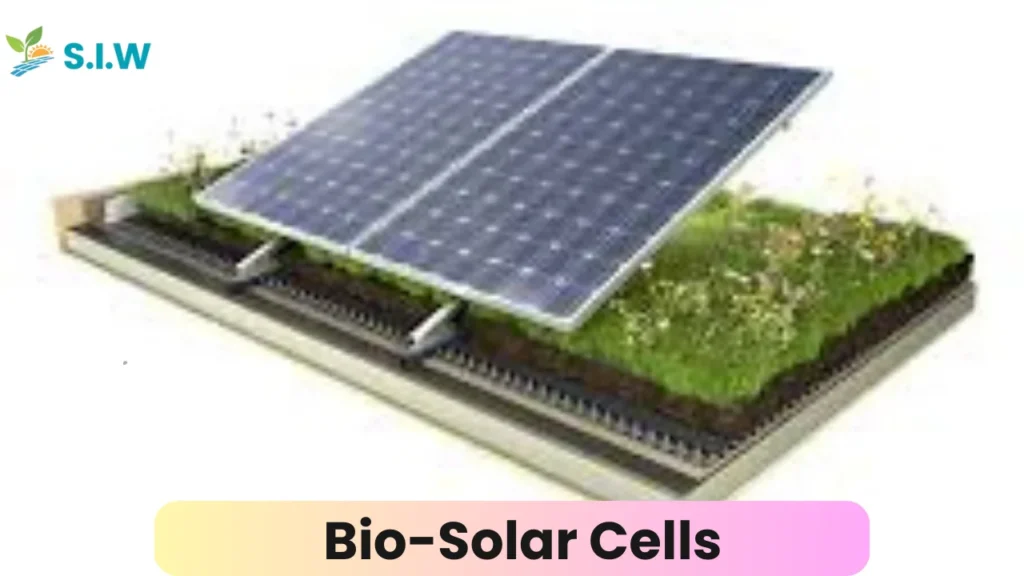Bio-solar cells are a type of solar technology that harnesses energy from sunlight using biological materials like algae, bacteria, or even plants. Unlike traditional solar cells made from silicon, bio-solar cells create electricity through photosynthesis, the same process plants use to convert sunlight into energy. Imagine tiny living cells working together to make clean, renewable energy — it’s a step closer to merging nature with technology.
How Do Bio-Solar Cells Work?
The Science Behind Bio-Solar Power
In bio-solar cells, photosynthetic organisms like algae or bacteria capture sunlight and convert it into electrons, which flow to generate electricity. These cells are often kept in small containers or layers where they can get sunlight. When sunlight hits the biological material, it excites electrons within, creating a small electric current that can be harnessed. It’s a fascinating natural process, allowing us to use nature’s own methods for producing sustainable energy.
I first heard about bio-solar cells when reading an article on alternative energy sources. The idea of using living organisms to make power sounded incredible, and it made me think about how science can creatively solve energy problems.
Benefits of Bio-Solar Cells
Eco-Friendly and Renewable
Bio-solar cells are incredibly eco-friendly because they use natural, renewable materials and leave a much smaller carbon footprint compared to traditional solar cells. Instead of using heavy metals or toxic materials, bio-solar cells depend on organic components, making them safe for the environment.
Low-Cost Production
Bio-solar cells have the potential to be cheaper to produce because they don’t rely on costly materials like silicon. Instead, they use inexpensive, widely available natural elements. This affordability can make renewable energy accessible in areas where conventional solar panels may be too costly.
Bio-Solar Cells vs. Traditional Solar Panels
Key Differences
Traditional solar panels use silicon to create electricity, which is efficient but involves a complex manufacturing process. Bio-solar cells, on the other hand, generate electricity through photosynthesis, making them a natural energy source. While they currently produce less power than silicon-based cells, bio-solar cells are evolving quickly, and scientists are finding ways to improve their efficiency.
When I first compared these two types of solar cells, I found that bio-solar cells are not yet as powerful as regular panels but offer unique advantages, especially in terms of eco-friendliness.
Challenges of Bio-Solar Cells
Low Energy Output
One of the main challenges is that bio-solar cells produce a lower energy output than conventional solar panels. For instance, while a silicon solar panel on your roof can power an entire household, a bio-solar cell currently generates a smaller amount of electricity. Researchers are working to boost this efficiency so that bio-solar cells can be more practical for larger applications.
Short Lifespan of Biological Materials
Another challenge is that the biological materials used in bio-solar cells can have a short lifespan. Since they are living organisms, factors like temperature, sunlight, and water availability affect their longevity. This means bio-solar cells may need regular maintenance and replacement of their biological components.
Bio-Solar Cells in Everyday Life
Potential Uses for Bio-Solar Power
Bio-solar cells are not yet common in homes, but they show promise for small-scale power needs. For example, they could be used in remote areas where electricity is scarce, or for powering small devices like sensors and lights. As efficiency improves, bio-solar cells might one day become a mainstream power source.
One possible future use is in farming, where bio-solar cells could power remote sensors to track soil conditions and weather. Imagine a farm powered by bio-solar cells, where crops are monitored without relying on grid electricity.
The Future of Bio-Solar Cells
Advancements in Research
Scientists are constantly working on new ways to make bio-solar cells more efficient. Recent studies focus on genetically modifying algae or bacteria to capture more sunlight or even using artificial photosynthesis. According to NREL, these advancements could eventually lead to bio-solar cells that rival traditional panels in efficiency, opening new doors for renewable energy.
Bio-Solar Cells in Space Exploration
Interestingly, bio-solar cells are being studied for potential use in space exploration. NASA is looking into the idea of using bio-solar cells on space missions where traditional power sources may not be feasible. Their lightweight and renewable nature make them a great candidate for powering equipment on long missions or in remote space stations.
Personal Experience with Renewable Energy
When I started using renewable energy at home, I installed a mini solar panel system, which sparked my interest in alternative energy. Learning about bio-solar cells has been fascinating because it shows how nature can inspire new technology. While bio-solar cells aren’t ready for home use yet, I’m excited to see where this technology goes.
Frequently Asked Questions
- What are bio-solar cells made of?
Bio-solar cells use biological materials like algae or bacteria to generate electricity through photosynthesis. - How do bio-solar cells differ from regular solar panels?
They generate power naturally via photosynthesis, unlike silicon-based panels that convert sunlight with synthetic materials. - Are bio-solar cells eco-friendly?
Yes, they are highly eco-friendly since they rely on renewable, natural materials, reducing pollution and waste. - What are the current limitations of bio-solar cells?
They produce less power and have a shorter lifespan than traditional solar panels due to their biological nature. - Can bio-solar cells be used in households?
Not yet, but they may become viable as efficiency improves through ongoing research and technological advancements.
“For expert guidance on selecting the perfect battery for your needs, reach out for a free quote today! We’re here to help you make the best choice for your system.”








